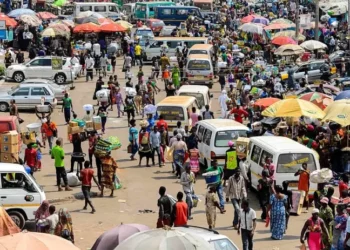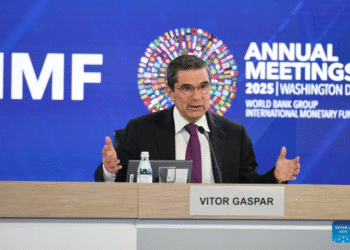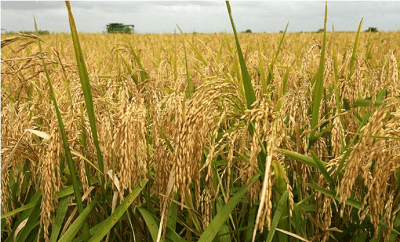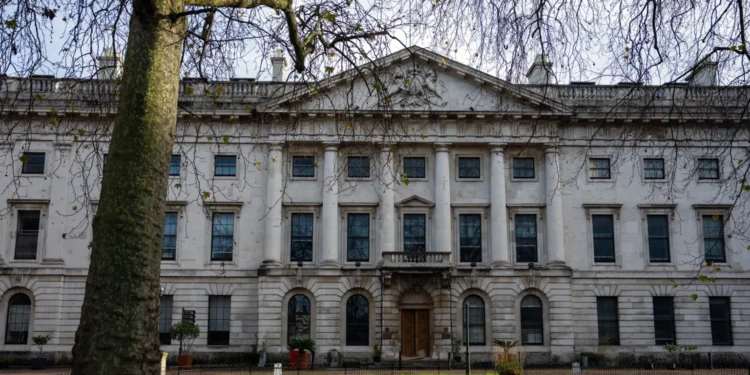As the December 2024 general elections in Ghana approach, concerns are rising over the country’s fiscal stability, with Fitch Solutions anticipating significant expenditure overruns by the government.
The UK-based firm pointed to the ruling New Patriotic Party’s (NPP) trailing position behind the National Democratic Congress (NDC) as a key factor that may drive the government to increase spending in an effort to secure public support.
Fitch Solutions suggested that the impending elections are likely to prompt a more expansionary fiscal stance by the government, injecting additional demand into the economy. Despite the government’s commitment to implementing fiscal reforms in line with Ghana’s International Monetary Fund (IMF) program, the firm predicts substantial public expenditure overruns in the lead-up to the December 2024 polls.
Drawing on historical data, Fitch Solutions highlights a trend that has been observed since the beginning of the century – an average increase of 3.0 percentage points in public expenditure as a share of the economy during election years. This pattern suggests that governments tend to ramp up spending in election cycles, potentially to gain favor with the electorate through various initiatives and projects.
The NPP’s Catch-Up Strategy
The report underlines the NPP’s trailing position in the polls as a motivating factor for the anticipated surge in government spending. Facing competition from the NDC, the ruling party may employ a catch-up strategy, allocating resources to projects and programs aimed at winning public sympathy and support. This approach, while politically strategic, raises concerns about the fiscal implications and the potential impact on Ghana’s overall economic stability.
The expected increase in public expenditure comes at a time when Ghana is traversing economic challenges and striving to adhere to the conditions of its IMF program. The risk of significant expenditure overruns poses a threat to the government’s fiscal discipline and may strain the country’s finances, potentially leading to higher debt levels.
In light of these projections, stakeholders, including policymakers, economists, and citizens, are calling for prudent fiscal management to ensure the country’s economic stability. Striking a balance between addressing public needs and maintaining fiscal responsibility will be crucial in navigating the challenges posed by election-driven expenditure overruns.
The anticipation of significant expenditure overruns by the Government of Ghana, as predicted by Fitch Solutions ahead of the December 2024 elections, sheds light on the intricate relationship between political strategy, fiscal policies, and their impact on the country’s economic landscape. In addition to election dynamics, the government’s historical tendency to subsidize utilities and implement social welfare programs plays a pivotal role in shaping the economic narrative.
Election-Driven Measures and Economic Stimulus
Fitch Solutions suggested that the government is likely to implement familiar measures in the form of subsidies and social welfare programs to garner public support in the upcoming elections. This strategy, witnessed in previous election cycles, has been a consistent tool to improve disposable incomes and stimulate household spending. The forecast for 2024 includes an anticipated private consumption growth of 3.8%, up from 3.2% in 2023, contributing significantly to the headline real Gross Domestic Product (GDP) growth.
The implementation of social support programs is expected to play a crucial role in supporting disposable incomes, thereby contributing to increased domestic consumption. By enhancing the economic well-being of citizens through targeted initiatives, the government aims to secure public support and loyalty. This tactic aligns with a broader pattern observed in Ghana’s political landscape, where social welfare measures are strategically employed in the run-up to elections.
Fitch Solutions underscored the role of favorable exchange rate dynamics in moderating consumer price inflation. A more stable and advantageous exchange rate is expected to contribute to a moderation in inflation, providing relief to households and further strengthening household spending. This favorable economic environment, coupled with government measures, creates an atmosphere conducive to increased consumer confidence and expenditure.
While these election-driven measures may temporarily boost economic indicators, concerns persist about the sustainability and long-term impact on Ghana’s fiscal health. The potential for expenditure overruns, despite promises of fiscal reforms, raises questions about the government’s ability to strike a balance between political imperatives and economic prudence.
As Ghana approaches the December 2024 elections, the intertwining of political strategies, fiscal policies, and economic outcomes becomes increasingly evident. The government’s inclination to subsidize utilities and implement social welfare programs reflects a well-established approach to winning public support.
While these measures are expected to stimulate household spending and contribute to GDP growth, the potential risks associated with fiscal irresponsibility and economic instability remain. The electorate and economic stakeholders will keenly observe how the government navigates this delicate balance, ensuring that short-term political gains do not compromise the long-term economic well-being of the nation.
READ ALSO: Ghanaian Cedi Concludes 2023 with 15% Depreciation Against the US Dollar






















